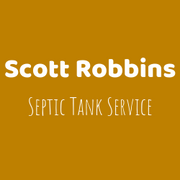5 Dangerous Myths About Your Home's Septic System

A septic system is an effective solution to process waste for homes that can’t connect to a municipal sewer line. There are plenty of misconceptions that can diminish the system’s effectiveness, despite being so widely used. If you have a septic tank, review this guide to dispel common myths regarding it.
What Common Misconceptions Harm Your Septic System?
1. It Can Process Any Waste
While the system effectively processes a large variety of waste, many items will damage it when flushed down the drains. Common household items that should never be sent through the system include cotton swabs, cat litter, personal wipes, paper products, feminine hygiene items, and disposable diapers.
The bacteria and enzymes in the tank can’t break these items down, so they fill the container much quicker and eventually cause waste to back up into the home. You’ll smell an unpleasant odor wafting through your plumbing fixtures when this problem occurs.
2. Chemical Cleaners Are Safe
No store-bought cleaning solution that has chemicals in it should be used to clean water fixtures or remove clogs. The system’s tank relies on a precise balance of bacteria and enzymes to break down waste effectively. When the chemicals from these cleaners get into the tank, they throw off that balance and cause the system to become less effective.
3. Pumping Isn’t Necessary With Additives
 Additives provide extra enzymes and bacteria that enhance the biota in the tank and aid in waste processing. However, using additives isn’t a replacement for pumping the tank.
Additives provide extra enzymes and bacteria that enhance the biota in the tank and aid in waste processing. However, using additives isn’t a replacement for pumping the tank.
Even with the additives, a solid layer of waste builds up within the tank. If the container isn’t pumped regularly, it becomes filled with this sludge and can no longer accept additional waste.
4. It’s Safe to Build on the Leach Field
When the waste leaves the tank, it drains into the leach field where the soil and sediment process it further. This area of the system needs to remain free of any heavy structures.
Excessive weight can compact the soil and prevent the tank from draining, or it could damage the container itself. Building structures in the leach field also makes it more difficult to access the system when pumping is required. Avoid parking vehicles and heavy equipment over this area as well.
5. The Tank Only Needs Pumping When It Smells Bad
Unpleasant odors coming from the system indicate that you’ve waited too long to have the system pumped. Depending on how much waste is generated within the home, the tank requires pumping every three to five years. If you aren’t sure when the last pumping appointment was, have a professional inspect the system and set a unique schedule based on your household’s needs.
Keep your septic system operating efficiently by contacting the experts at Scott Robbins Septic Tank Service. Serving residents in Denton, NC, for over 20 years, this family-owned and -operated business has the experience and tools needed to fix any issues and keep your system protected. Call (336) 880-0859 for a free estimate, or learn more about their services online.
About the Business
Have a question? Ask the experts!
Send your question

